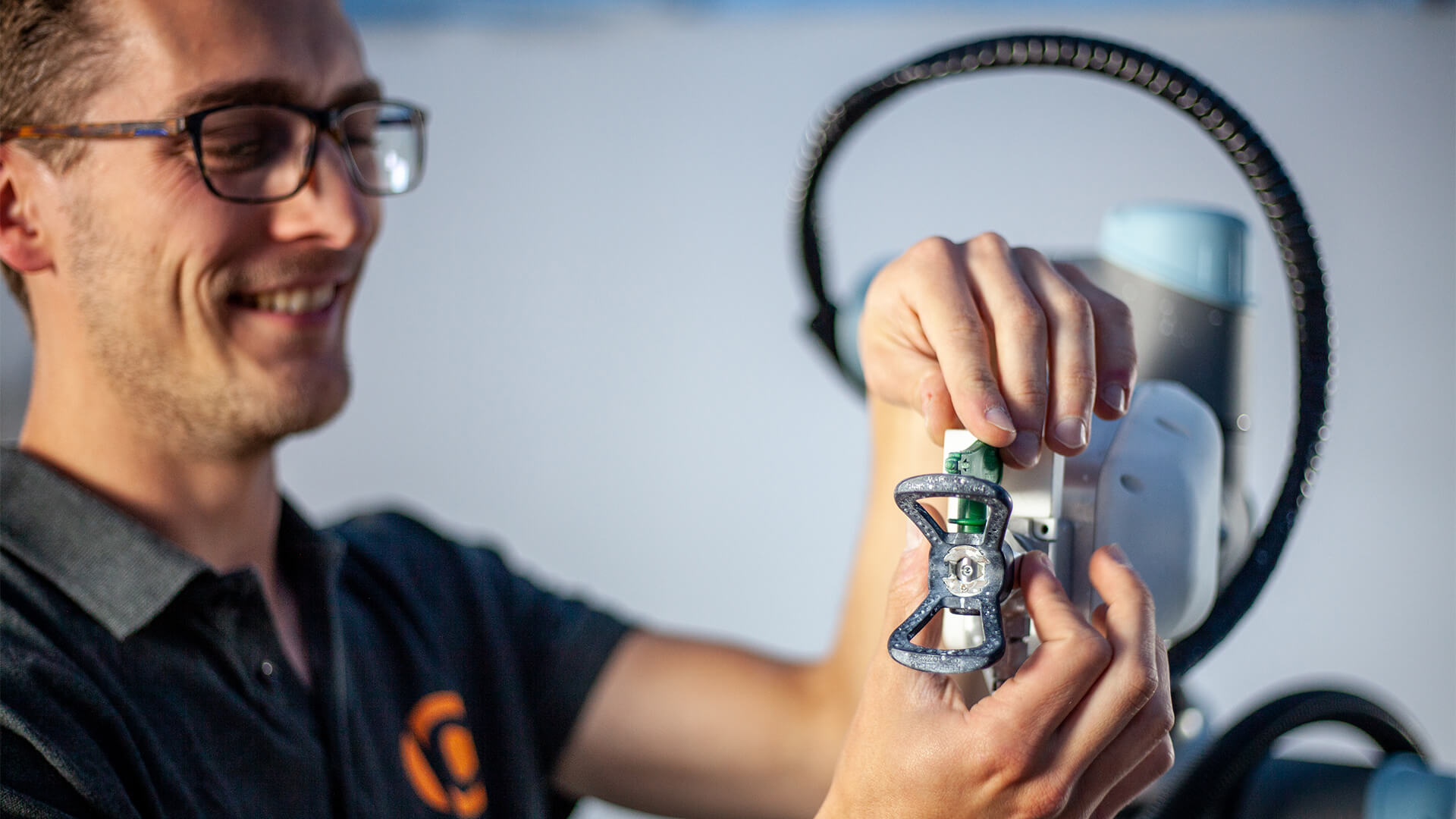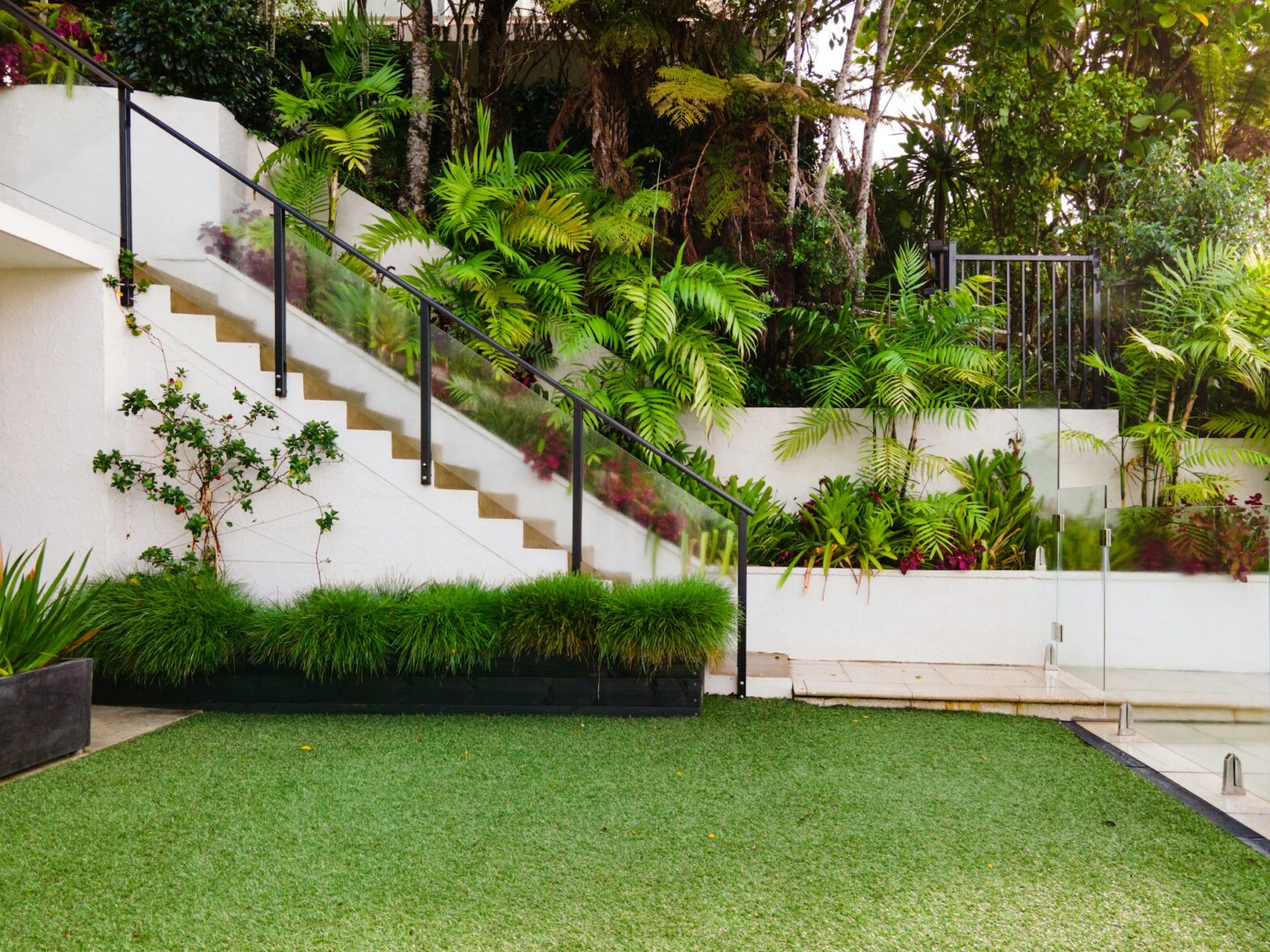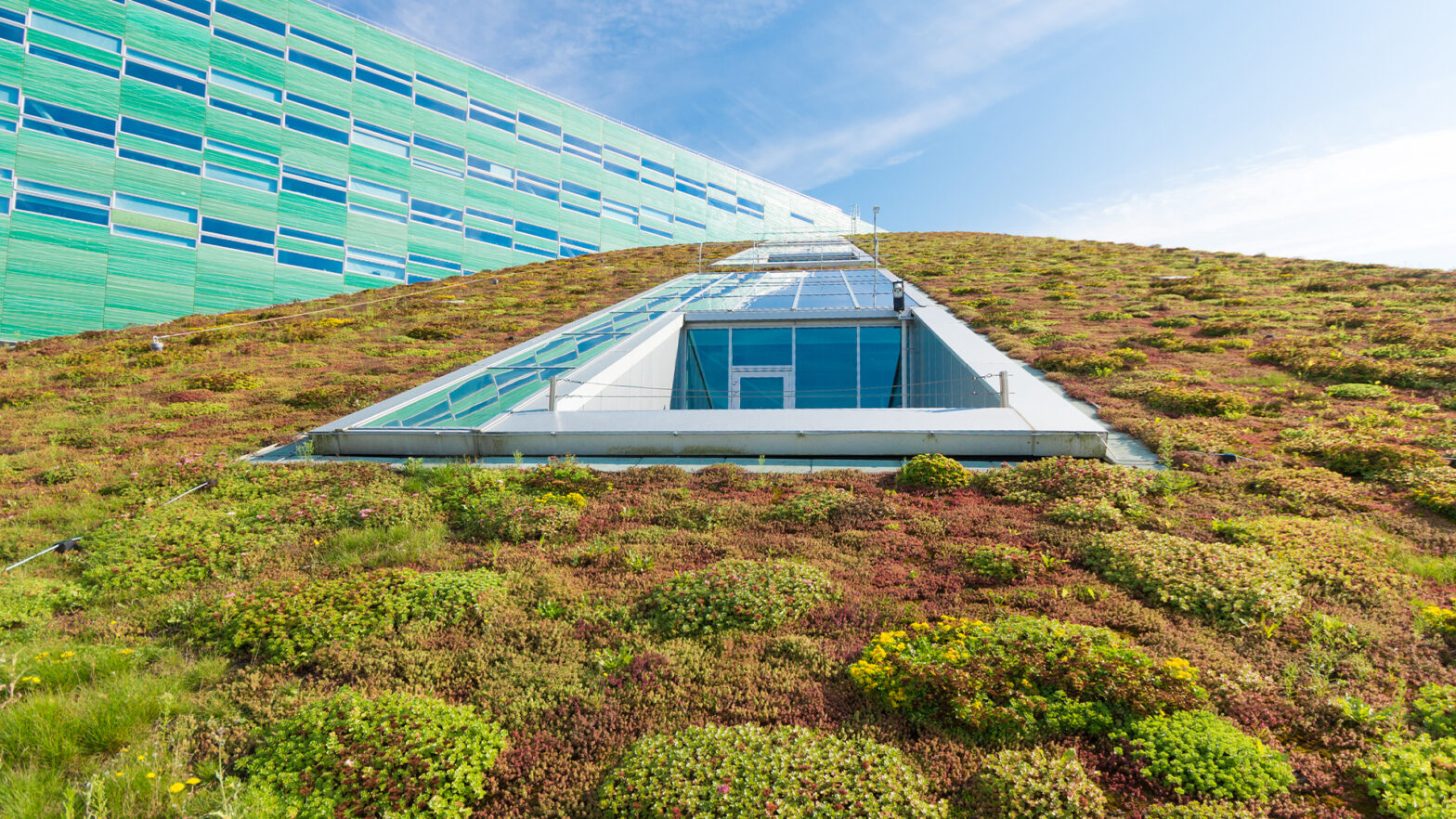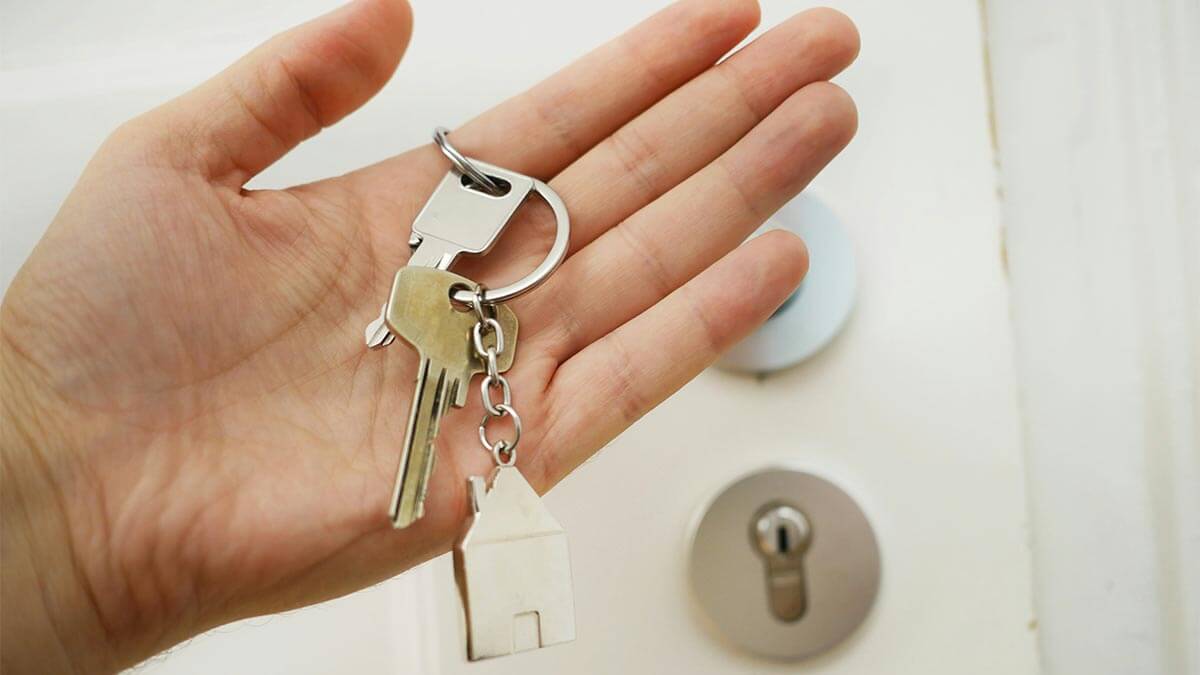Meet PACO, the painting robot that adapts to users’ needs and eliminates the pains of repetitive painting work. Engineered by Les Companions, which was founded by Antoine Rennuit in 2018, this patented technology is the bridge between robotics and construction. We chat with Antoine to learn more about this intelligent device and how “it has never been easier to collaborate with a machine”.
The painting industry is facing many different constraints and stresses, from reduced margins to hard working conditions, and high pressure on delays. Due to the complexity of the sites, and the diversity of the works and of the environments, painting is a very skilled trade with not much room for errors and inefficiencies, rate require labor with the right skills to succeed. Though, despite of the very strong need, companies have a hard time recruiting labor with the right know and there is a shortage of skilled labor: in the UK 61 percent of the painting business managers struggle to hire.
Not far from being available on the market, PACO, the painting robot has undergone extensive R&D and several prototypes in the five years since Antoine Rennuit launched Les Companions. Now, Antoine feels it is finally ready to start making its mark on the construction industry.
During our talk with Antoine, he emphasises the fact that it isn’t a tool to replace humans, but rather to complement the human. It is all about collaboration between man and machine, as Antoine states, “It’s really another tool for the painter alongside brush, roller and airless. The painter is at the centre of the process, PACO achieves what is dull, repetitive, painful, and the painter does all the final works and decision making. That’s the collaboration that we want to put into place with PACO.”
PACO has been tested on several working sites of different types, from industrial to offices and used by companies with different culture, from the 10-employees decorating business to the more structured sub-contractor. The working constraints and the ways of working can be very different.
“We know there are a lot of pains in this industry and some of these pains, we can solve through robotics.”
PACO serves as a much-needed assistant in an industry that suffers from a shortage of skilled workers. This shortage makes human time all the more costly, so workers shouldn’t be spending time on the mundane tasks. Once programmed, PACO, with its state-of-the-art algorithms and proprietary developments, will get on with the paint job while skilled employees focus on the skilled tasks. Not only this, but PACO has the ability to paint faster than a human, enabling the efficient meeting of deadlines.
PACO is designed with painters and construction companies in mind, to solve the daily struggles that come with paint tasks for large refurbishments and new builds – first of which is how repetitive a task painting is. Painting all day everyday can cause physical pain for an individual, as Antoine shares, “You always do the same gesture at work, you have repetitive strain injuries (RSI), and it’s difficult. I’ve got an uncle who was a painter doing this all day long and he had to stop painting at 50, which is obviously not the time you should stop your career. That was because of RSI. PACO can solve this problem.”
With a robot doing all the painting, this means consistent high quality of work, too. PACO uses a very repetitive and optimised gesture throughout a paint job, and comes equipped with an automated airless spraying system, which guarantees complete precision. Additionally, as PACO knows about the applied quantity of paint, it can apply the equivalent thickness of two coats of paint in one go to so as to speed up the process. This all comes in very useful for large-scale jobs, with Antoine saying, “It’s not a tool that you would use on any type of site; it is a tool for a specific type of site – the bigger volumes that have a lot of square metres to be painted. That’s where the collaboration between man and machine really comes into play.”
Notably, Les Companions also has several partnerships to enhance its offering, including that with its historical investors and high-performance paint companies, AkzoNobel which is best known for its UK brand, Dulux and Unikalo, a major French paint brand.
Undoubtedly, PACO will revolutionise an industry that Antoine describes as “in need of change” but with challenges. While robots have been used by companies for years, there are technicalities that have made them a challenge to deploy within construction.
Antoine explains, “The car you are driving, if you have a car, has probably been manufactured by robots somehow, and this has been the case for 30 or 40 years now. The construction environment requires more smartness, more complex algorithm. In the industrial environment, you always do the same task, however, in construction, there are no two rooms that are exactly the same, even in a multiple-storey building. All that makes it more difficult to deploy a robot into the construction environment than it is into an industrial environment.”
But Les Companions has made it happen.
At the end of the day, what PACO does is make life easier. It overcomes all painting struggles and enables an easier day at work. As Antoine says, what Les Companions is selling with PACO is “peace of mind” and “an easier life onsite for everyone”.
So, what’s next for Les Companions and PACO? Now having almost finished the R&D stage and taken feedback of professional painters into account, the company is gearing up to release PACO into the market this year. Antoine tells us, “At the moment, we are looking for the first early-stage customers – people who want to change the industry with us, people who feel the daily problems that come with being a painter. These will be our first customers, and building a safe, sound, fruitful relationship with them is our challenge for this year.”
For business enquiries, contact Antoine Rennuit from Les Companions via email – [email protected] or on their website – www.lescompanions.com
































